Membership websites present a double-edged sword. It's a great position to be in when you're compensated for producing valuable content. Creating a supportive community, helping members solve a problem, or teaching people a new skill are all potential benefits of membership websites.
However, you can't rely strictly on producing paid content for your members because you also need to promote your website. A key piece of the promotion puzzle is the ability to attract organic traffic from search engines. However, having your content behind a protected paywall makes it challenging or even impossible to glean the very benefits you are in search of.
In this post, we’re going to take a look at two simple strategies you can use to improve your search engine optimization and attract more organic traffic to your membership website. We’ll also cover some of the specific on-page factors you should take into consideration when producing content that is both easy to read and more likely to be ranked well.
Post Excerpts & Restricted Content
Many people forget search engines are all about one thing: providing the best experience possible to the end user.
Keeping 100% of your content behind a paywall is rarely an effective strategy since it presents a poor user experience. Google has no interest in directing users to content that they can't see. As a result, with little or nothing to index, decent rankings and organic search results are guaranteed to suffer.
In order to improve your placement and increase organic traffic streams in the SERPs, MemberPress allows you to do two things with your content:
- Use post excerpts to display a portion of content before protected posts that are both readable by visitors and indexable by search engines.
- Using Shortcodes or PHP snippets, you can protect only a specific portion of your content. So for example, you might display an entire article but make a small, key portion of it restricted to members only.
Finding a balance between paid and publicly accessible content is always a challenge. You’ll see recommendations of 200-300 word excerpts for each piece of protected content, which is fine. But if your competition is using excerpts of the same size, maybe it’s time to consider offering more? By increasing the quality and quantity of information available to search engines, you're more likely to find your content indexed and ranking well.
High-Value Free Content
Free content is quite possibly the best strategy when it comes to promoting your membership website. Although it goes against everything you are trying to accomplish with a membership site, if you have faith in the value you are offering behind a paywall, free content has the potential to help you attract more members than almost anything else.
We’re not talking about free content that leads people down the path of becoming a paid member. No, we’re talking about free content that provides massive value. So much value that visitors can't help but realize how much better off they would be with a paid membership.
In addition to impressing visitors, valuable & free content will also impress search engines. It’s exactly what they prefer to make available in the SERPs. If you look at it from their point of view, would you rather index many small excerpts that provide negligible value or an epic, high-value post that wowsreaders?
How to Reap the Benefits of Great Content
Now that you know what needs to be done (provide free, high-value excerpts or content) the question is, how should you structure that content in order to maximize your SEO benefits?
Content Length Matters (But Not as Much as You Think)
Notice I didn’t say the longer a piece of content is, the more it matters. That’s because, there are times when a few hundred words is adequate and there are other times when a few thousand words is appropriate. On balance, according to serpIQ, the average content length on the first page of the SERPs was over 2000 words (entire page including sidebars). But don’t let that figure mislead you. SerpIQ also hypothesized that domain age, natural backlinks, social signals, and other factors all played an important role in how well content was ranked for competitive keywords.
What does this mean for the typical membership website? It means your content needs to be long enough and provide enough value that visitors are compelled to link, share, and comment. If you were hoping that a plain vanilla, 200-word post excerpt would have you ranking for critical keywords, you might end up disappointed.
On-Page SEO
Your job isn’t over once you produce a piece of great content. How you optimize your page or post is equally important. Here are just a few of the factors you should consider when optimizing your page or post:
- Use a keyword friendly URL and title. For extra leverage, try to keep the keyword closer to the front than the back.
- Use your keywords once within the first two paragraphs.
- Support your content with relative outbound links to authority content.
- Link to other related articles on your membership site.
- Be generous with images and video wherever possible.
- Speed matters. Your website doesn’t have to be the fastest on the block, but if it stands out as unusually slow, it will likely be penalized.
- Include a relevant and descriptive meta description that is intriguing to readers.
Wrap Up
There are no tricks or secrets when it comes to optimizing your membership website for search. If you're building a business that's designed to stand the test of time, there is no better way to improve your SEO than through the creation of high quality, indexable content.
If all of your content is hidden behind a wall, it’s great for your members, but will do nothing to improve your organic traffic.
The best solution to improve the SEO for your membership website is using a combination of free content, post excerpts, and restricted content. The more content you make available to search engines, the more likely you are to improve your placement in the SERPs.
What strategies do you find work best to improve your membership websites SEO? Please share in the comments below.













Add a Comment